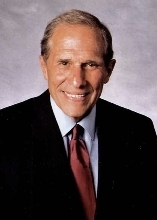With years of experience in healthcare, leadership and publishing, Chuck Lauer has cemented himself as a mentor, leader and friend to many.
The former publisher of Modern Healthcare took some time to share 16 pieces of advice for new healthcare leaders, along with his thoughts about the importance of consistency and face-to-face communication.
Question: The workforce seems to be filled with a mix of really focused motivated people and some people that seem to have somewhat of an entitled attitude. How does a great manager or leader mesh a team coming from different backgrounds?
Chuck Lauer: Great leaders set goals and priorities for their organization and then they communicate what those goals are in person to the total workforce through onsite visits! E-mails and memos serve a purpose, but in order to inspire a workforce, the CEO must make it his or her priority to communicate their vision and sense of mission personally. It is a commitment that all highly effective leaders make.
Q: What is an example or two of a great leader? And why?
CL: Two of the most effective and inspirational leaders in healthcare are Michael Dowling, president and CEO of Great Neck, N.Y.-based North Shore-Long Island Jewish Health System, and Chris Van Gorder, president and CEO of Scripps Health in San Diego. Either one of them could have been successful in any field they chose. They believe in the dignity of the workforce and make it clear on a regular basis to their people that every single individual is critical to the success of the organization. Both are men who have great conviction, passion and integrity and do not abide incompetence and casualness in attaining excellence within their institutions. Both have great character as well and are recognized for their innovation, risk-taking and creativity.
Q: How do you keep yourself and an organization focused on a mission day after day? Month after month?
CL: Of course, communication is the answer. A leader must instill in his or her leadership team that they must reinforce the organization's goals on a regular and consistent basis. It isn't easy, and too often leaders become distracted for whatever reason and forget how important open communication is to the workforce. Too often leaders become distracted for a variety of reasons and forget that if they become distracted, oftentimes that becomes evident to their people who then can become distracted as well. So consistency of the message, mission and vision to the workforce is essential to consistency of productivity by the workforce.
Q: You have had a magnificent career as a leader and have been an extraordinary mentor to many across the healthcare and media world, what advice to you have for someone moving into leadership?
CL: Over the years I have been in leadership positions, I learned that a leader must always have an open-door policy so every one in the organization knows they are willing to hear what their people have to say. It is really a simple matter of treating every single individual with dignity and respect. For any leader coming into healthcare, I believe it is important that they try new ideas and take risks. Mr. Dowling and Mr. Van Gorder are risk-takers, and what they have done has paid off for their respective organizations and consequently their success.
The healthcare field needs new ideas and courageous leaders to make them happen. Leaders must show resolve and a willingness to change if the conditions merit doing so. On the other hand, a leader must also be consistent and mature in their personal behavior. After all, a leader sets the tone of a given organization and if they are not consistent that can often sow the seeds of unrest and stress. Any of those things can be a major component of failure and consequently must be avoided!
My advice to anyone coming into healthcare in a leadership position involves these basic tenets:
- Hire people who show creativity, innovation and passion.
- Don't be afraid to also hire people who are smarter than you.
- Be a leader who is consistent, mature and handles adversity and stress with patience and calmness.
- Listen to everybody no matter what station they have in your organization.
- Don't play favorites.
- Make a conscious and consistent effort to hire minorities.
- Listen and listen and listen more. If you do, you will learn many important things that will help you be a better leader.
- Talk to other healthcare leaders and learn from them.
- The most important thing you can do every day is mentor your people. Help them to become leaders and help them to succeed.
- Encourage celebrations when goals are met and be there to celebrate with your people.
- Remember your success is dependent on others, so treat others always as respected peers.
- Be you and don't try to be someone you are not You must be a special person already or you wouldn't be where you are now!
- Hire the handicapped. There are many bright people that are handicapped and have first-rate minds and intellect. Help them in every way you can to succeed.
- Be a leader by acting like one so that your people are proud of having you as their leader.
- Your success and the success of the organization depends on others, so treat everyone you meet with the utmost respect and dignity.
- Keep it simple!



